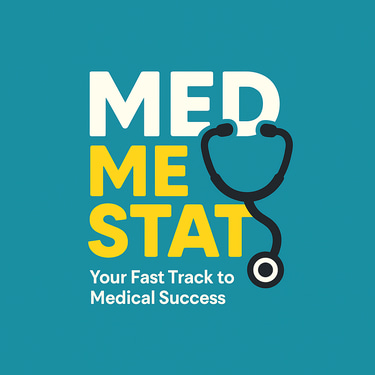How Pakistani Doctors Can Work in Singapore (MBBS, FCPS, MRCP, MRCOG, MRCPCH, MRCPI)
Singapore is a global healthcare hub with world-class hospitals, strong medical infrastructure, and competitive salaries for doctors. Many Pakistani doctors now look at Singapore as an alternative to the UK, Ireland, or Australia.
But the registration process is very specific. Unlike the UK (with GMC exams) or Australia (with AMC exams), Singapore has no central licensing exam. Instead, eligibility depends on your qualifications and job offers.
This guide explains all the pathways, salaries, requirements, and work-life balance for Pakistani doctors who want to move to Singapore.
Pathways for Pakistani Doctors in Singapore
There are three main routes for Pakistani MBBS/FCPS graduates and those with Royal College qualifications:
1. Temporary Registration → Clinical Associate (CA)
Who is eligible?
MBBS from a WHO/World Directory-listed medical school.
Valid PMC/PMDC licence to practise in Pakistan (or equivalent licence from country of graduation).
Key facts
Job title: Clinical Associate (CA) – works as a Senior Medical Officer (SMO) or Registrar depending on skills.
No licensing exam in Singapore. Registration happens only after you secure a hospital job.
Jobs often facilitated by recruitment agencies (commonly Nucleus Pte Ltd).
Timeline: 8–10 months (job offer → SMC Temporary Registration → Ministry of Manpower work pass).
Requirements rising over time
Hospitals increasingly prefer candidates with postgraduate training or partial exam progress (e.g., MRCP Part 1for physicians).
MRCS is not recognised for Conditional Registration. Surgical doctors face limited progression.
2. Conditional Registration → Resident Physician (RP)
Who is eligible?
Doctors with one of the following recognised memberships:
MRCP (UK)
MRCPI (Ireland)
MRCOG (UK)
MRCPCH (UK)
Job title: Resident Physician (RP), with levels:
RP1 → RP2 → Senior RP → Principal RP
Limitations:
Principal RP is the highest position foreign graduates can achieve in this pathway.
Principal RPs function like junior consultants in daily work, but without consultant rights.
3. Fellowships (6–12 Months)
Offered across major Singapore healthcare clusters.
Duration: 6 months–1 year (some paid, some unpaid).
Require a sponsorship letter from a home-country hospital confirming re-employment after return.
Originally meant for consultants, but some doctors with completed training but not final exams (e.g., FCPS training completed) have been accepted.
Limited rights, fully supervised. Usually return is mandatory after completion, though some secure extensions.
Consultants with UK/US/Aus/NZ Training (CCT/Fellowship)
Doctors with CCT/fellowships from UK/US/Australia/New Zealand are eligible for Conditional Registration.
Requirement: at least 2 years of specialist-level experience in the country of training.
After 2 years in Singapore on Conditional Registration, they can apply for Full Registration.
If fellowship holders (FRCR, FRCOphth, etc.) lack overseas specialist work experience, they enter as Resident Physicians, not consultants.
Language Requirements
English is the main working language.
The local version “Singlish” mixes English, Malay, and Mandarin but is widely understandable.
No IELTS/OET required by SMC, but many hospitals prefer proof of English if interviews show weakness.
Salaries for Doctors in Singapore
Salaries vary by hospital and seniority. These are typical ranges.
Clinical Associate (Temporary Registration)
Base + housing allowance: SGD 6,000–6,500/month
With calls/admin work: SGD 7,500–8,500/month
At registrar level: up to SGD 10,000/month
Resident Physician (Conditional Registration)
Salaries increase with RP level (RP1 → Principal RP).
Principal RP: around SGD 9,000–10,000/month before tax.
Consultants (Associate → Senior Consultant)
Associate Consultant: at least SGD 12,000/month, often more with allowances.
Consultants and Senior Consultants earn significantly higher.
Taxes
Paid annually, roughly equal to one month’s basic salary per year.
Offset by the 13th month Annual Wage Supplement (AWS), effectively making pay close to tax-neutral.
Work–Life Balance in Singapore
Official: Mon–Fri, 8am–5pm.
Reality: in surgery/allied specialties, rounds start ~7:30am.
Many arrive 6:00am and leave 5:30–6:00pm → expect ~12-hour days.
Heavier than UK/US in many specialties.
ENT/Ophthalmology tend to have lighter schedules.
Residency Training in Singapore
Formal residency is not open to most Pakistani doctors.
Requirements:
Must be a Singapore PR or Citizen
MBBS from an SMC-registrable medical school
Pakistani MBBS degrees are not registrable in Singapore → hence no direct entry into residency.
Permanent Residency (PR)
PR pathway is undefined and quota-based.
Pakistanis fall into the “Others” category, with very low approval rates (~5–7%).
Some get PR in 3–4 years, others wait over a decade.
Should Pakistani Doctors Choose Singapore?
Good option for those without UK/Ireland/Australia pathways, as a stepping stone to gain first-world healthcare experience and strong salaries.
Less ideal for those with clear GMC/IMC/AMC options, where specialist training and long-term recognition are better.
Surgery progression is limited without MRCP/MRCOG/MRCPCH/MRCPI equivalents.
Compared with Gulf countries: Singapore is more structured, offers better experience, and at least a possibility of PR.
FAQs: Pakistani Doctors in Singapore
Q: Do I need IELTS or OET for Singapore?
A: Not required by SMC, but hospitals may prefer it.
Q: How long does the process take?
A: Around 8–10 months after job offer.
Q: Can I switch specialties after joining as a Clinical Associate?
A: Sometimes possible at registrar level after ~6 months; less flexible for Medical Officer roles.
Q: Can I enter residency in Singapore?
A: No, unless you are PR/citizen and MBBS is from an SMC-registrable medical school.
Q: How much do doctors earn in Singapore?
A: Clinical Associates: SGD 7.5–10k/month; Resident Physicians: SGD 9–10k/month; Consultants: SGD 12k+ per month.
Final Thoughts
For Pakistani doctors, Singapore offers:
High salaries compared to Pakistan and Gulf countries
Excellent clinical exposure in a first-world system
Challenging workload with limited progression to full consultant level unless holding international qualifications
👉 Best viewed as a stepping stone: gain experience, complete Royal College exams, and keep long-term options (UK, Ireland, Australia) open.
